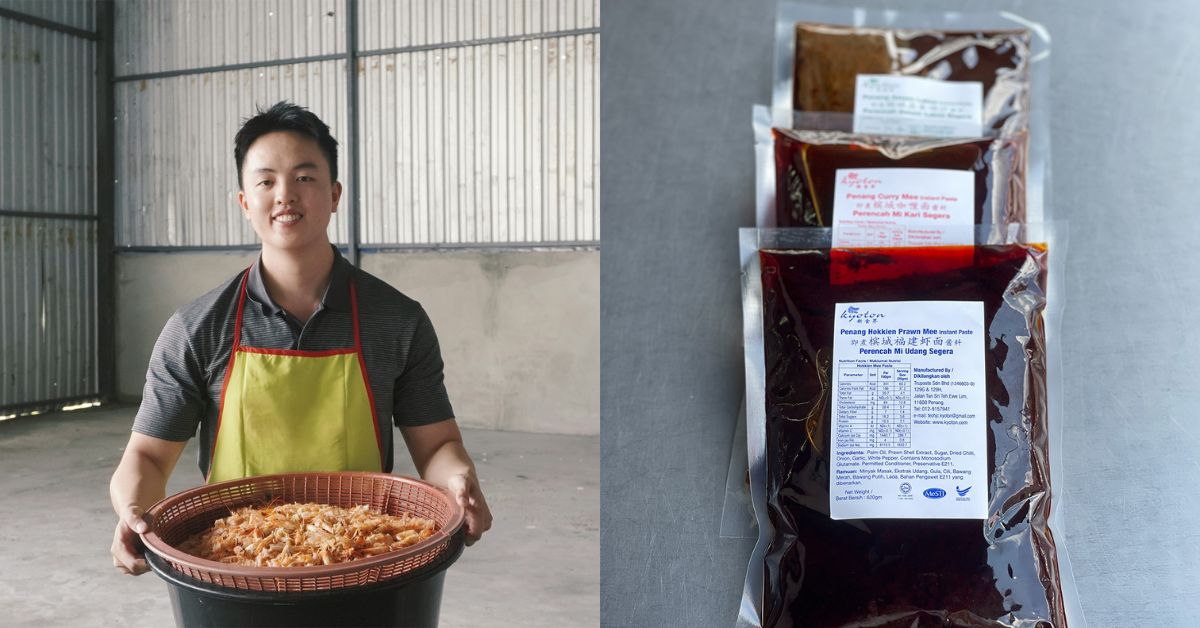The heart of Trupaste beats with the rhythm of a family. In 1993, sisters Alice Chang, Lily Chang, and Chang Sok Kheng weren’t just running a successful kopitiam, Kedai Makan Besty Best, in Sri Gombak—they were experiencing the challenges of F&B life firsthand.
Every steaming bowl of Penang prawn mee they served was a labour of love, but the process, especially crafting the rich broth, was a time-consuming ordeal.
“The ingredients or toppings of the noodles themselves don’t take long, but the soup, on the other hand, takes hours of work,” said John Ho, who is the sales and marketing mind behind this second-generation family business.
Hours were spent simmering prawn shells, a backbreaking task that left them yearning for a more efficient solution.
This yearning, coupled with their deep understanding of hawker needs, planted the seed for Trupaste.
Overcoming hawker scepticism
The idea of a centralised cooking station to ease the burden of preparation for F&B operators had been simmering in the back of their minds for years.
Fast forward nearly two decades and Trupaste became a reality in 2012 with the help of their eldest brother (John’s uncle).
Inspired by the sisters’ recipes, he set up the cooking paste manufacturing company and managed the daily operations of Trupaste in Penang, Simpang Ampat.
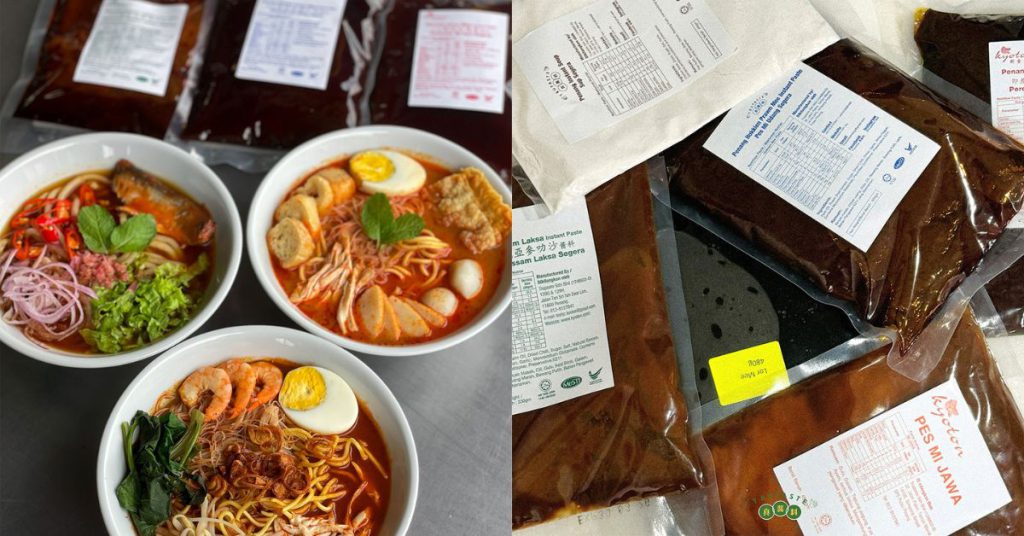
However, their journey wasn’t a walk in the park.
Convincing hawkers to embrace a new product wasn’t easy, especially when it came to something as personal as their broths.
“From the get-go, we knew that hawkers are a tough crowd to please (my mum is one herself after all),” John told Vulcan Post.
The mere mention of “instant” cooking paste often sent shivers down their spines. Perhaps they envisioned a lab filled with bubbling concoctions and scientists whipping up artificial flavours—a far cry from the time-tested methods they held dear, he said jokingly.
“Now, hawkers weren’t averse to pre-made ingredients entirely. Western food stalls use pre-made spaghetti sauces daily. Many Cantonese-inspired stir-fry stalls use ready-made sauces in the preparation of kung pao or sweet and sour chicken,” he shared.
But for the soul of Malaysian cuisine—the prawn mee, curry mee, and asam laksa—paste seemed like an unwelcome intruder.
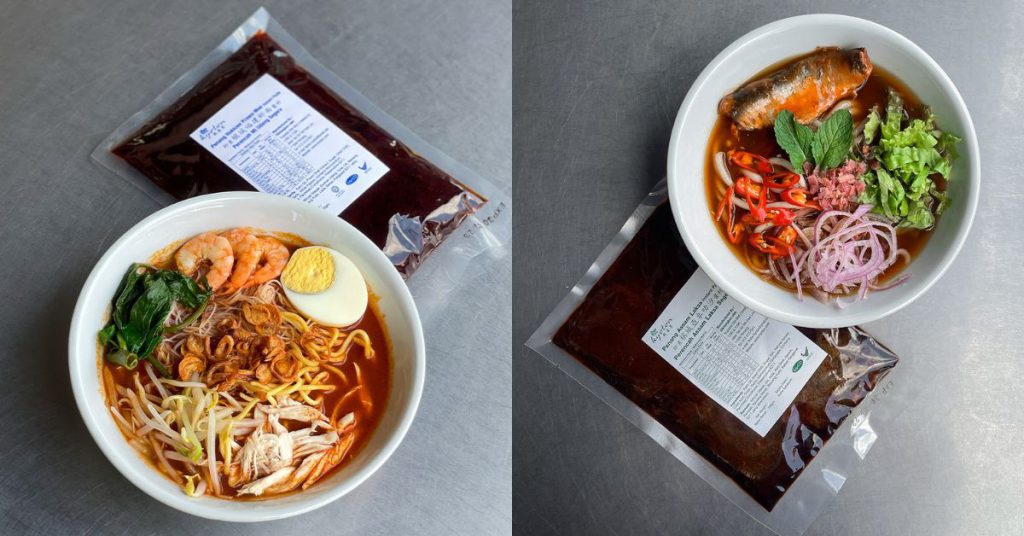
However, breaking the stigma associated with “instant” food in traditional Malaysian cuisine is an ongoing effort. Their use of authentic ingredients and modern machinery to replicate traditional flavours has gradually won over sceptics.
The Trupaste team understood these reservations. Their mission wasn’t to replace tradition but to streamline it.
They tirelessly explained that their “instant” label simply meant they had taken care of the laborious prep work—the hours of simmering and extracting flavours—so hawkers could focus on what truly mattered: crafting delicious dishes for their customers.
They focused on freshness by sourcing prawn shells directly from Penang’s bustling fishing ports, demonstrating their commitment to local flavours.
“One of the main reasons we set up our factory in Simpang Ampat is due to its proximity to the fishing port. This means that we have a constant supply of the fresh shells required to manufacture our prawn mee paste,” said the 29-year-old who joined his family business in 2021.
Convincing the hawkers was a gradual process. The Chang family encouraged them to try small quantities of the paste, allowing the quality and convenience to speak for themselves.
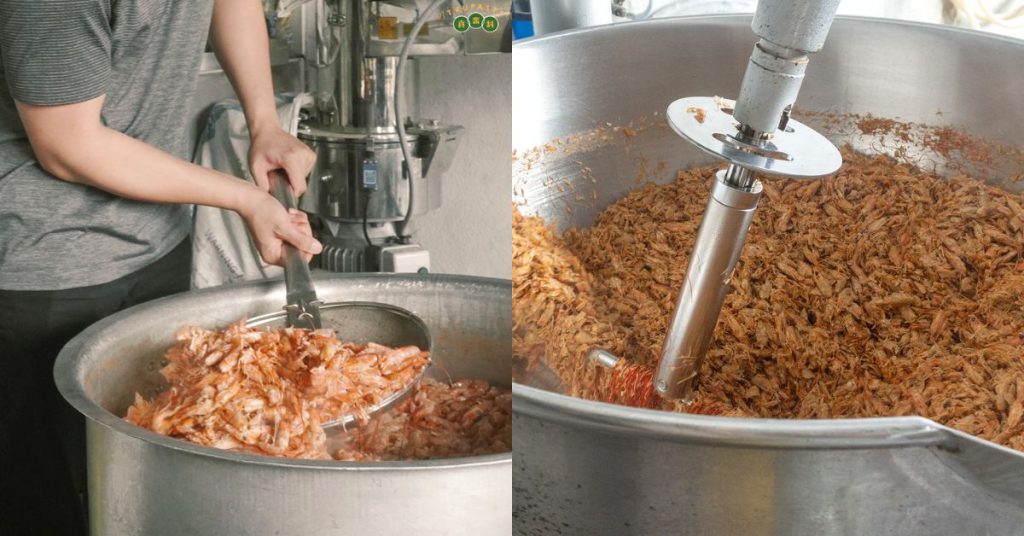
Slowly, the tide began to turn. Hawkers began to see Trupaste not as a shortcut, but as a helping hand—a way to preserve tradition while reclaiming precious prep time in the kitchen.
The secret sauce: Family
The kopitiam continues to thrive, run by the three sisters, while the factory in Penang is managed by their brother.
The Chang sisters, leveraging their experience from decades in the F&B industry, spearheaded recipe development.
John’s uncle handled the factory operations, while his father, initially responsible for sales and distribution, now enjoys a semi-retired life.
“I joined Trupaste in 2021 after I graduated and helped with the operation or sales arm of the business. My girlfriend Joanne Yeap is the brain behind most of our online presence. She built our online brand identity from the ground up with her unique designs, videos and photoshoots.”
“Back then, most of our customers were acquired through traditional door-to-door sales and word of mouth. Our customers were highly concentrated in the Klang Valley and Penang area,” said John.
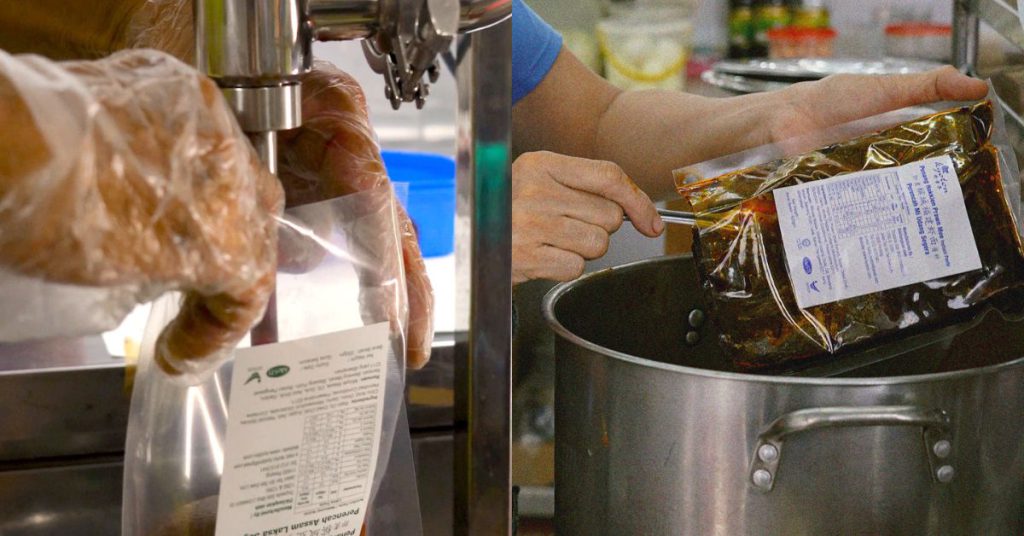
However, gone are the days of brochures and flyers for the brand; through diligent online marketing efforts on platforms like Meta, Instagram, and Little Red Book, Trupaste has expanded its customer base to all 13 states in Malaysia.
“One of our key strategies has been leveraging social media to share behind-the-scenes snippets of our production process.”
“This transparency has built trust and piqued interest among potential customers. We’re committed to maintaining a strong online presence to continue expanding our reach,” he shared.
The Halal certification from JAKIM in 2020 further broadened their market, enabling them to reach a diverse audience.
The road ahead
Today, Trupaste boasts a loyal following of over 500 F&B customers, encompassing both bustling hawker stalls and established restaurants.
John also shared that their pastes have created over 20 million bowls of noodle dishes.
Trupaste currently manufactures and distributes six different cooking pastes: Prawn Mee, Curry Mee, Asam Laksa, Penang Lor Mee, Soup, and Mee Jawa.
Of these, three are available in family packs, catering to home cooks. Their primary customers remain F&B operators, from hawkers to cafes and restaurants.
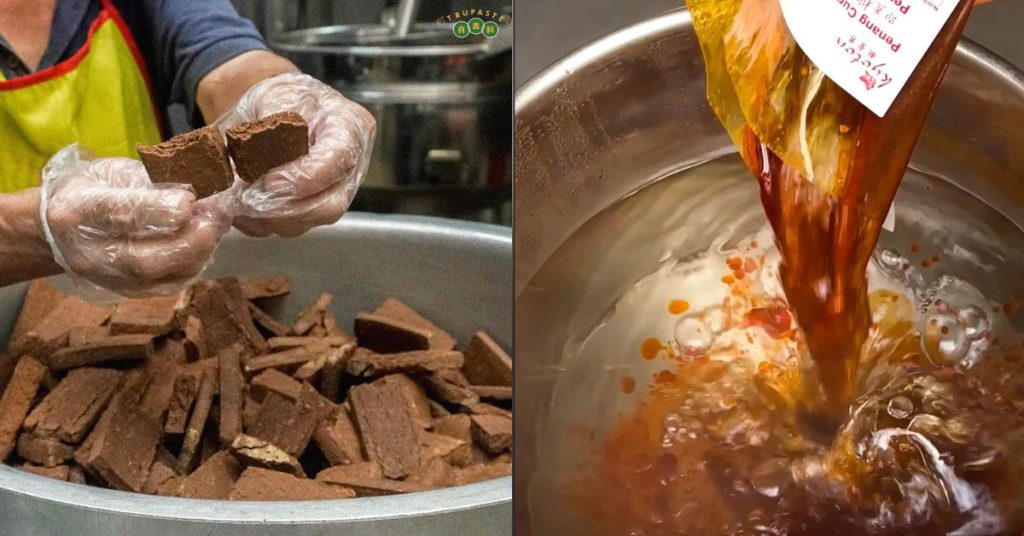
While they have international expansion as a long-term goal, their focus is firmly on the Malaysian market.
“Our vision is to become the go-to paste for F&B operators, and we’re confident that patience and persistence will help us achieve this,” John expressed.
With their unwavering dedication to quality and family values, they’re well on their way to making cooking paste the norm, just like packaged santan became a staple in Malaysian kitchens.
- You can learn more about Trupaste here.
- Read other articles we’ve written about Malaysian startups here.
Featured Image Credit: Trupaste

